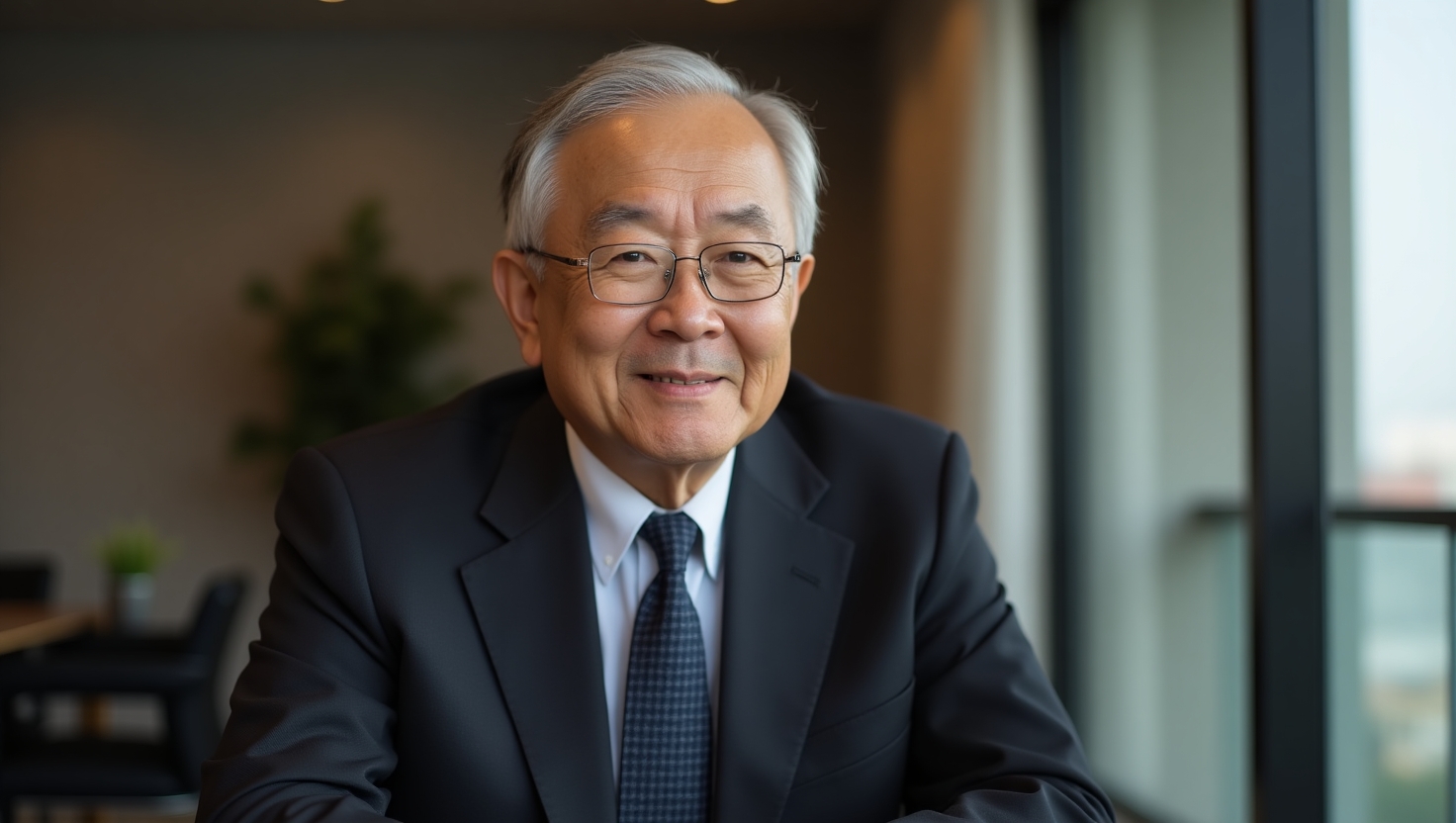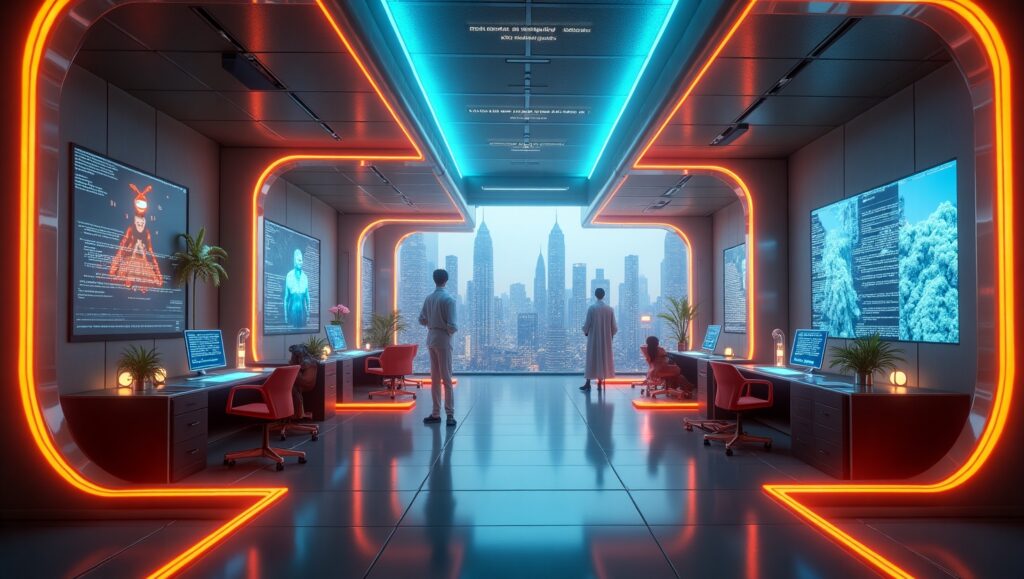Inside Ren Zhengfei’s Vision: How Huawei Is Building the Future of AI
In a world consumed with future vision, five-year plans, and firefighting, Ren Zhengfei, the 79-year-old founder and CEO of Huawei, takes a different approach rooted in humility, tenacity, and deep faith in all of us: the power of humanity.
In response to an inquiry regarding artificial intelligence and the challenges ahead for Huawei, Ren delivered a surprising response in an interview with People’s Daily that illustrates where he is coming from: “I didn’t think about it… It is useless to think about it.”
That isn’t a shrug of apathy or ignorance, but a state of being that reflects a more profound philosophy. And that is, action over anxiety, determination over anticipation. Thinking about the future in the age of AI is not about grand declarations or panicking money-chasing; it is calm, deliberate progress:
“Don’t think about the difficulties. Just do it and go step by step.”
This is exactly what Huawei is doing.
A Company Under Fire – But Not Dead
By many metrics, Huawei has faced one of the most focused global pressure campaigns on a private company ever attempted. U.S.-led sanctions have tried to shut it off from advanced chips, key software, and international collaboration, and many pundits have predicted its demise. Instead, Huawei recalibrated.
When presented with the challenge of cutting-edge chip technology losses, Ren Zhengfei has adjusted to the limitations.
“The United States has overstated Huawei’s successes,” he says without hesitation.
“Huawei is not that good yet.”
Ren explains that Huawei’s premier artificial intelligence chips, like its Ascend 910 series, are still a generation behind both Nvidia and AMD. But where others may have frozen and stalled, the hardware gap has invited Huawei to innovate more deeply. He explains that the company is leveraging software and mathematics to facilitate transcending physical restrictions imposed by sanctions.
“We use math to replace physics,” he explains, describing a condition where the AI potential was not just achieved using faster chips, but also through smarter code and better architecture. Huawei now links several chips into high-efficiency clusters, optimizing systems through algorithmic brilliance rather than raw performance.
When Praise Becomes a Problem
Ren is not comfortable with the world stage. He actively avoids it.
“We are under pressure when people praise us,” he confesses, “We will be more sober when people criticize us.”
At a time when corporate branding can go into overdrive, his approach seems refreshing. For Huawei, it is not criticism, but an opportunity. “Criticism is a gift from our users,” he aptly says, reminding me that the company doesn’t just listen to its partners or its investors, but to those who interact with its product and/or service.
This also allows Huawei to develop a culture that values internal discipline over external validation. Every miss is a lesson. Every loss, a step toward being resilient. And every success, a reason to go deeper, instead of louder.
Rooted in Research: A Long-Term Approach
Ren’s greatest passion — his actual obsession — is not chips, 5G, or smartphones. His passion is fundamental science.
“If we don’t do fundamental research, we don’t have roots,” he says.
“I believe if the roots aren’t deep enough, even if the branches have leaves, when the wind blows, they will fall.”
While other tech firms talk about quarterly returns, Huawei is thinking and acting long term. The company spends approximately one third of its staggering R&D budget of ¥180 billion (approximately $25 billion), approximately ¥60 billion ($8.34 billion), on basic science research, which does not always lead to a product or has statistically zero chance of a return on investment, but has limitless potential for future innovation.
This involves next-level research on quantum computing, next-gen AI architectures, mathematical modeling, and hyper-efficient algorithms; research that may not even yield a commercial product for another 10 years. This is a wager on the patience of time and thoughtfulness.
Getting AI to Everybody: A Democratized Future
Even with Ren’s humility, it is quite obvious that he recognizes the massive potential of AI. Ren believes that China has the best opportunity to lead this new reality, not just because of its talent or technology, but for the right reasons.
In his eyes, AI innovation will not happen just in tech companies, like Huawei, but in developing AI technologies when domain experts—engineers, doctors, teachers, architects, and even miners—use AI to solve problems in their specific field.
Ren’s idea of patching together random AI developments is quite radical, in that it is minimizing the power of the traditional tech centers, like the Valley, and putting the power in the hands of people working at the frontlines. Again, he envisions AI not as a replacement for work but as a tool for empowerment, realizing intelligence at every part of society.
Globalization: “The Future May not be American”
Ren’s optimism is not confined to Huawei or China—it is worldwide, tempered by the realism of a changing political landscape.
He remembers earlier this year reading an op-ed written by New York Times columnist Thomas L. Friedman. It was titled:
“I Just Saw the Future. It Was Not in America.”
For Ren, that statement neatly captures a slight yet growing reality: innovation is becoming global, and the U.S. is no longer in control of technological advancement.
At the same time, Ren will not be triumphalist. His emphasis has been on cooperation, coexistence, and solving real problems, not competition for supremacy.
Huawei’s Secret Weapon: Calm Leadership in a Chaotic World
In a world filled with disruption in their industry, Ren Zhengfei’s leadership approach seems almost subcultural. While Silicon Valley businesses prioritize speed, iteration, and hyper-growth, Huawei’s founder is focused on discipline, humility, and long-term thinking.
“Do not care about compliments or blame, but care about whether you can do it well,” he said.
If that’s all, the better advice, softened with giving the world it may be Huawei’s greatest competitive capability in the face of embargos, chip bans, and lots of global scrutiny. It is a style of leadership rooted in deep confidence, not in the company today, but in where the company is headed for the next 10 years, 20 years, or even 50 years.
Final Thoughts: The Calm Before the Leap
Ren Zhengfei doesn’t usually make radical predictions in his interviews. He has never stated that there is a countdown clock to AGI. He doesn’t profess that Huawei will outpace its competitors tomorrow. Instead, there is patience. Discipline. Strategic silence.
But beneath that humility lies a vision for technological transformation that embodies confidence in Fundamental Research, Mathematical Genius, and the collective genius of everyday professionals.
In Ren’s universe, real power is not noise or news. Real power is roots – deep, unshakeable, invisible roots. And trust-trust in your people, your process, and trust to believe that the most important leaps of advancement happen not even with a bang, but with a soft step forward.




